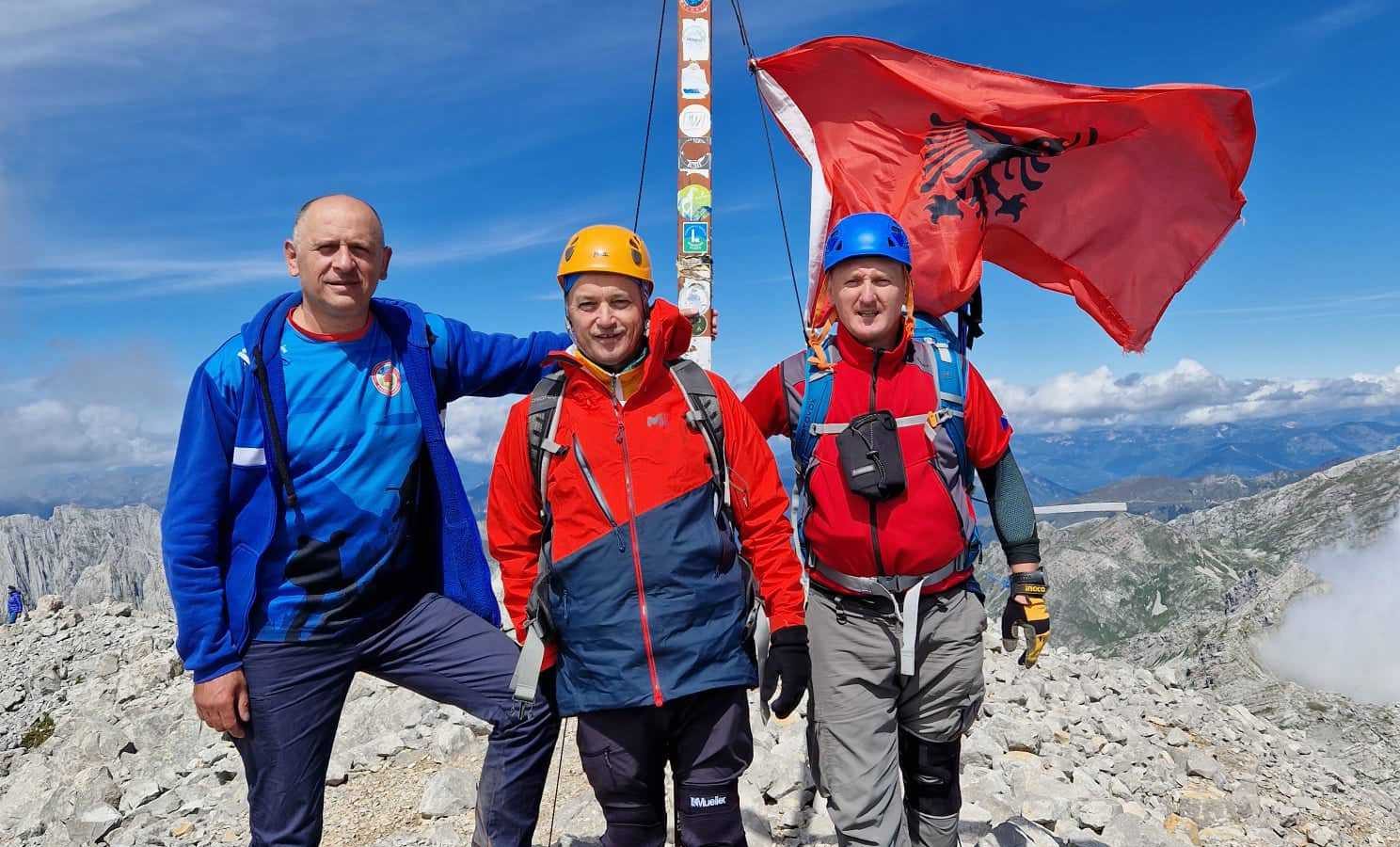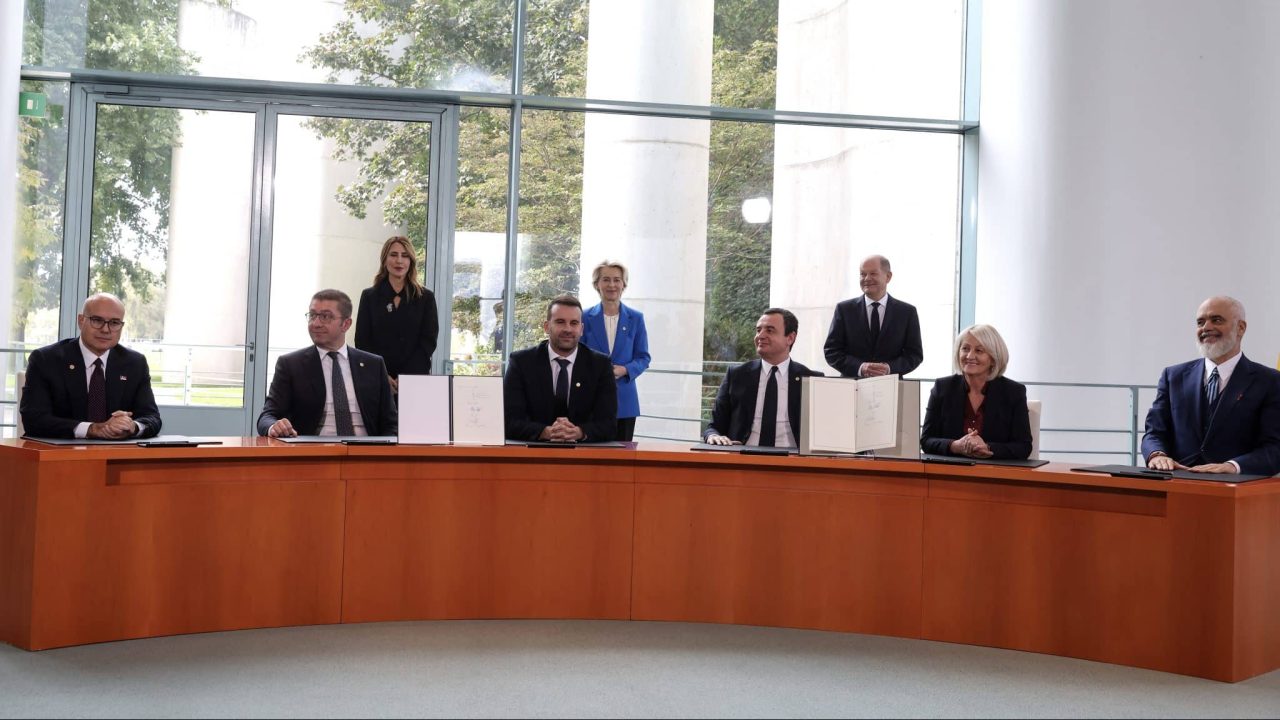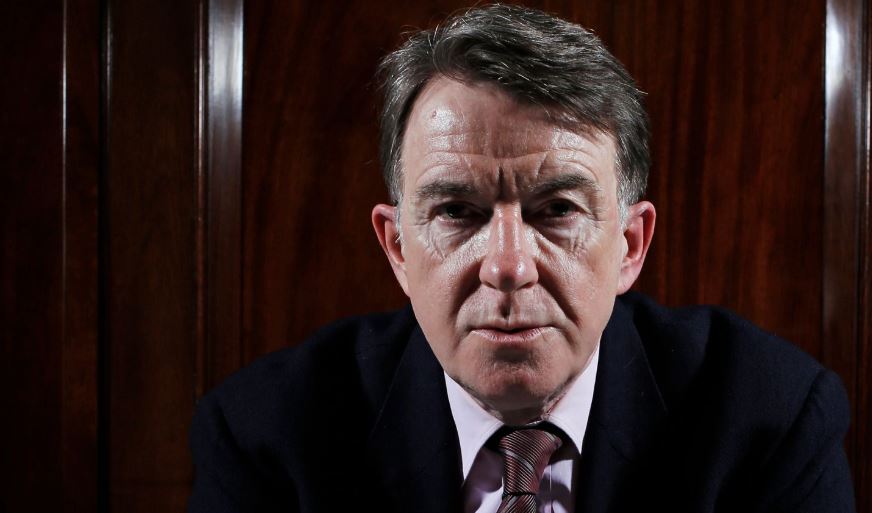Kosovo’s announcement in mid-October that it will abolish visas for Bosnian citizens from January 1, 2025 is a dream come true for Morina and others like him, who currently have to pay to travel outside Bosnia to queue at an embassy with a pile of papers in the hope of getting a stamp in their passport. Success is not guaranteed.
“It feels as if someone bought me a toy I wanted as a kid,” he told BIRN, saying he had dreamt of Prizren’s cobblestone streets.
The prospect of visiting the city once more, however, is tinged with disappointment – Kosovars wishing to go the other way still face a mountain of red tape to secure a visa, while Morina said he feared “it is too late” for younger generations to forge the same kind of connection he had as a child.
“I have grown-up daughters who feel no connection to Kosovo,” he said. “They didn’t get the chance to fall in love with it.”
Bosnian Serb refusal

The closest Emir Morina (L) has ever come to Kosovo in the last 20 years – the border between Montenegro, Albania and Kosovo) in the Bjeshket e Nemuna (Accursed Mountains) National Park. Photo courtesy of Emir Morina.
The roots of the visa issue lie in Bosnia’s failure to recognise Kosovo as independent due to opposition from Bosnian Serb leaders who back Serbia’s own refusal to accept its former southern province as sovereign.
So restrictive are the conditions to secure a visa that it effectively became harder for citizens of Bosnia and Kosovo to go to each other’s country than for Kosovo citizens to visit Serbia or Serbians to visit Kosovo. Srdan Blagovcanin, chairman of the Board of Directors at Transparency International Bosnia and Herzegovina, said the visa situation between Bosnia and Kosovo was “absurd” at a time when Kosovo and Serbia each recognise the other’s ID cards.
In 2022, Bosnia signed up to a Freedom of Movement deal within the framework of the so-called Berlin Process, allowing travel access across the region only with ID cards, but lawmakers in Bosnia’s predominantly Serb-populated Republika Srpska entity vetoed Bosnian implementation of the accord the following year.
Bosnian Serb leaders have made clear that they would interpret any move by Bosnia to recognise Kosovo as further grounds to pursue the Republika Srpska’s own secession from Bosnia. Milorad Dodik, the Republika Srpska president, reiterated following Kosovo’s announcement that Pristina should not expect the same from Bosnia.
Damir Masic, an MP from the Social Democratic Party, one of the ruling parties in Bosnia’s mainly Croat and Bosniak Federation entity, said only “external pressure” could force the Bosnian Serbs to back down. Serbian President Aleksandar Vucic, he claimed, “can solve this issue in 24 hours. Just like the EU.”
The change is a start, however.
“Going there would mean a new world for me,” said 64-year-old Nedzad Dashi, who, like Morina, was born in Sarajevo but has many relatives in Kosovo.
But, he said, “The damage is done. People died and you were not present, people got married and you were not present.”
“There are already generations and generations of children who do not know each other.”
His aunt, Meliha Dashi, was also born in Sarajevo and spent the first 25 years of her life in the city before moving to the Kosovo capital, Pristina. Now 76, she has not seen her nephew or anyone on his side of the family for 15 years.
“You don’t forget your hometown so easily,” she said of Sarajevo, “but distance takes a toll”.
The process of obtaining a visa was too expensive and time-consuming for many Kosovars and Bosnians.
When her brother’s daughter died in Bosnia, Meliha Dashi said she didn’t even bother trying to attend the funeral. “The attempt itself was pointless because I certainly wouldn’t be able to go to Bosnia in such a short time,” she said.
Meliha said she had even considered taking Serbian papers, which would allow her visa-free access to Bosnia, but she said this should not be a solution for Kosovars “as it carries other negative repercussions”.
“If the state of Kosovo was able to make it possible for the citizens of Bosnia and Herzegovina, Bosnia and Herzegovina can also make it possible for the citizens of Kosovo,” she said.
Decades-old prejudices

German Chancellor Olaf Scholz, European Commission president Ursula von der Leyen and prime ministers from the Western Balkans at the Berlin Process Summit on October 14. Photo: EPA-EFE/MICHELE TANTUSSI/POOL.
Morina is old enough to remember the tensions that built in the 1980s before Yugoslavia’s bloody collapse in war the following decade.
It began, he said, with a change in the way people spoke of ethnic Albanians in Kosovo, where then Serbian strongman Slobodan Milosevic launched a crackdown in the late 1980s by revoking the province’s autonomous status and portraying Kosovo Serbs as under mortal threat from their more numerous Albanian neighbours.
“People around me spoke of Albanians as some sort of destroyers of Yugoslavia, describing them as extremely violent,” he said. “Being only 12 years old, I didn’t know how to confront those accusations. But I knew it wasn’t true.”
Albinot Maloku, a Kosovo-based political scientist, said “propaganda” about Kosovars began to shape popular perceptions. “I am very glad that there was no propaganda about Bosnia in Kosovo, even when it did not recognise it,” he said.
Blagovcanin, of Transparency, said Kosovo’s decision to abolish visas for Bosnian citizens was “a prerequisite, not only for its European integration but for the overall development of the region”.
Morina is already planning his first trip to Prizren.
“I’m glad that I will finally be able to show my friends the beauty of Kosovo and use this opportunity to confront all the accumulated prejudices,” he said. He also plans to take his 81-year-old mother with him.
“Last time I drove her to the border, she almost died out of pure sadness because I was standing not more than 10 kilometres from the city and still had to turn back,” he said.
“But it is a wonderful feeling to know that, at least next year, I will be able to fulfil her last wish: the two of us, together, once more, in our dear Prizren.”


